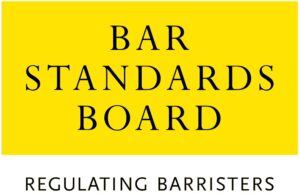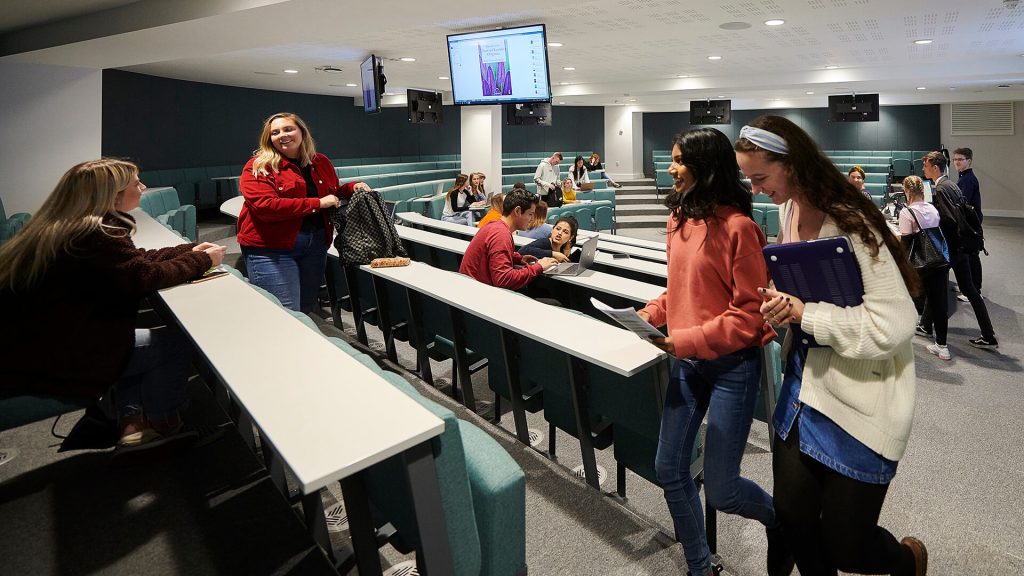Law with Criminology LLB (Hons)
UCAS code: M1M9
Are you fascinated by law and how it is viewed through a criminological lens? Our Qualifying Law Degree, Law with Criminology LLB (Hons), explores the foundations of law and theories of crime, providing exemptions from the academic stage of training to become a solicitor or barrister.
Overview
| Course length: | 3 years full-time 5 years part-time |
|---|---|
| Start dates: | September 2025 September 2026 |
| Location: | Edge Hill University (full-time) Edge Hill University (part-time) |
| Example offers: | BBC-BBB (A Level) or DMM (BTEC) View full entry criteria |
| Subject(s): | Law |
| Faculty: | Arts and Sciences |
| Department: | Law and Criminal Justice |

Our LLB (Hons) Law with Criminology degree provides an overview of legal systems and institutions with a minor specialism in criminology. It will provide you with an engaging, insightful and thorough insight into the world of law and crime, equipping you with the practical and substantive knowledge to practice law.
You’ll explore contemporary case studies and their critiques to sharpen your critical analysis skills. You’ll look at the police, criminal courts, prisons and youth justice services under the microscope, and understand the legal system as a whole – including its impact on society.
Joining our Law with Criminology programme also means that you’re embarking on an immersive learning experience, with opportunities to practise your mooting and negotiation skills in our on-campus Moot Court Room, provide legal advice to the community in our Law Clinic or act as a criminal defence lawyer in our ‘Crime House’.
You will also benefit from being taught by current and former legal practitioners and internationally recognised academics and can take advantage of our extensive industry links.
At our School, we pride ourselves on providing not only an excellent academic experience but also a supportive environment where you can thrive. We offer a broad range of extra-curricular activities to enhance your university experience, which includes Work Placement opportunities, Careers Fairs, Insight Days, Panel Events, our Student Law Society, wellbeing weeks, commercial awareness programmes, opportunities to participate in external competitions and educational visits to Inns, conferences and courts of law, such as the UK Supreme Court and the International Court of Justice in The Hague.
A qualifying law degree
The degree fulfils the first academic component required by the Bar Standards Board to become a barrister, while also providing a strong foundation to embark on the new routes of qualifying as a solicitor through the Solicitors Regulation Authority.
 Bar Standards Board
Bar Standards Board
 Solicitors Regulation Authority
Solicitors Regulation Authority
Course features
-
International students can apply
-
Learn a language option available
-
Professional accreditation
-
Sandwich year option available
-
Studying abroad option available
What you'll study
In the first year of law with criminology, we’ll unpack the basics. There’s an overview of legal reasoning and analysis, and you’ll take a look at the principles that regulate legally binding contracts. Hone your practical skills in our Lawyers’ Skills module or learn the fundamentals of Cyber Security. We’ll focus on criminal justice processes in crime and social justice contexts.
Explore property and land law in Year 2 of law with criminology. And decide whether to delve into administrative law as it operates in the UK or the process behind bringing a claim for judicial review. We’ll help you explore criminal law and critical criminology theory too, as well as the fundamental principles of public law. You’ll examine questions around violence. What are the various forms? And how can we understand its impact on society?
In Year 3 you’ll shape your studies by choosing from a variety of specialist areas of law. You’ll study these alongside your compulsory modules and could learn about Digital Policing and Cybercrime, Family Law, or Counter Terrorism. Perhaps you’d like to specialise in human rights, sports, the media or tax law? You’ll have the opportunity to forge the first steps to your future career path and apply practical aspects through our Law Clinic Experience module.
How you'll study
You will be taught by a mixture of lectures, seminars and workshops.
Joining our LLB Law with Criminology programme means you’re embarking on an immersive learning experience, with opportunities to practise your mooting and negotiation skills in our on-campus Moot Court Room, provide legal advice to the community in our Law Clinic or act as a criminal defence lawyer in our ‘Crime House’.
All students will also receive support in developing their academic legal skills, as well as transferable skills, through our Legal Skills sessions, Uniskills workshops and Careers Team events.
How you'll be assessed
Throughout the degree there is a combination of different forms of assessment to test intellectual development, vocational capability and critical thinking. Our assessments are also designed to ensure that you acquire a wide range of skills, particularly those required by future employers. You may be assessed via exams, coursework, presentations, practical assessments or a portfolio submission.
All students will receive assessment support in each module and will have access to additional support via Uniskills. You will also receive timely feedback throughout the module and after each assessment.
Who will be teaching you
You will be taught by our highly qualified and experienced team composed of current and former legal practitioners and internationally recognised academics. Staff have practical and research experience across a number of relevant fields including youth justice, sports law, artificial intelligence, cyber security, litigation, international law, human rights law and law enforcement.
Where your course includes optional modules, these are to provide an element of choice within the course curriculum. The availability of optional modules may vary from year to year and will be subject to minimum student numbers being achieved. This means that the availability of specific optional modules cannot be guaranteed. Optional module selection may also be affected by timetabling requirements. Some restrictions on optional module choice or combinations of optional modules may apply.
Your future career
Whether you are planning a career in the legal profession or a career in another field of expertise, our Law with Criminology programme will develop and inspire you to reach your career goals.
Our LLB law degrees are qualifying law degrees, so you’ll graduate with the key skills and knowledge required to enter the legal profession. Upon graduating, you can then undertake the required further legal training to become a solicitor or barrister, including our LLM SQE Legal Practice if you wish to qualify as a solicitor.
The transferable skills which you gain from our programmes also mean that a wide variety of doors are open to you whether in the legal sector, criminal justice system, civil service, public relations, accountancy or business and marketing.
Our recent law graduates have secured positions as Senior Crown Prosecutor for the Crown Prosecution Service, in-house solicitor at BAE Systems, Legal Director at Moderna and barrister at 4 King’s Bench Walk Chambers.
As a School, we are committed to enhancing your employability and helping you to find the right career path for you and that is why 98% of our Law students are employed or in further study 15 months after graduation (Graduate Outcomes data released 2024 from 2021/22 graduates).
Professional development opportunities are embedded into your programme or offered through extra-curricular activities, such as:
- Unique, practice-focused modules – e.g. Criminal Law in Practice, Law Clinic Experience, Mediation, Private Client, Civil Litigation.
- Work placement opportunities – whether taken as part of our work placement modules or as an extra-curricular activity, there are numerous opportunities to undertake work experience.
- Careers fairs, alumni panels, insight days – grow your network and build connections with our specialist School Careers Fair and annual alumni panel events.
Entry criteria
Typical offer 112-120 UCAS Tariff points. No specific subjects are required.
Example offers
| Qualification | Requirement |
|---|---|
| A Level | BBC-BBB. |
| BTEC Extended Diploma (or combination of BTEC QCF qualifications) | Distinction, Merit, Merit (DMM). |
| T Level | Overall grade of Merit. |
| International Baccalaureate (IB) | We are happy to accept IB qualifications which achieve the required number of UCAS Tariff points. |
| Access to Higher Education Diploma | 45 credits at Level 3, for example 15 credits at Distinction and 30 credits at Merit or 24 credits at Distinction and 21 credits at Merit. The required total can be attained from various credit combinations. |
Please note, the above examples may differ from actual offers made. A combination of A Level and BTEC awards may also be accepted.
If you have a minimum of two A Levels (or equivalent), there is no maximum number of qualifications that we will accept UCAS points from. This includes additional qualifications such as Extended Project Qualification (EPQ), AS Levels that haven't been continued to A Level, and General Studies AS or A Level awards.
English language requirements
International students require IELTS 6.0, with a score no lower than 5.5 in each individual component, or an equivalent English language qualification.
If your current level of English is half a band, one band, or one-and-a-half bands lower, either overall or in one or two elements, you may want to consider our Pre-Sessional English course.
Fair Entry Criteria
Our new Fair Entry Criteria is a Contextual Admissions Policy that takes an applicant’s personal and educational background into account. This policy will allow eligible applicants to receive up to a two-grade reduction in their entry requirements for this course. Find out more and see if you qualify.
How to apply
Apply full-time
Read our guide to applying through UCAS to find out more about the application process.
International
Please see our international student pages for further information about how to apply as a prospective international student.
Part-time applications require a direct application to Edge Hill. Please select the year of entry that you wish to apply for.
Should you accept an offer of a place to study with us and formally enrol as a student, you will be subject to the provisions of the regulations, rules, codes, conditions and policies which apply to our students. These are available at www.edgehill.ac.uk/studentterms.
If you join a full time undergraduate degree at Edge Hill University, we will guarantee you the offer of a room in our halls of residence for the first year of your course.
Discover our accommodation
Facilities

The £6m Law and Psychology building provides contemporary teaching and learning facilities for students in the School of Law and Criminal Justice.
The three-storey building includes a 250-seat lecture theatre, seminar and tutorial rooms, and social learning areas which encourage a more informal and interactive style of learning.
It is also where our moot court room and law clinic are located. Law, Policing and Criminal Justice students can train and practice their advocacy skills and cross-examination techniques as well as preparing for giving evidence in court.
Our Police Training and Simulation Facility known as the ‘Crime House’, part of which is furbished as a police station, is used to simulate a wide range of crime scenes, providing students with an immersive learning experience. The ‘Crime House’ includes a mock custody suite, mock living areas, interview rooms, a control room, and a state-of-the-art simulation suite.
This enables Policing, Criminal Justice and Law students to work together on practical exercises, developed by our expert staff and based on real-life scenarios, in areas such as gathering and analysing evidence, (including forensic evidence at crime scenes), practicing interview techniques and supporting mock clients during a police interview.
Where you'll study
Finance
Tuition fees
UK Full-Time
£9,535
a year
UK Part-Time
£79 per credit
for 360 credits
International
£17,000
a year
EU/EEA and Swiss students who have settled or pre-settled status under the EU Settlement Scheme, as well as Irish nationals, may be eligible for the UK tuition fee rate.
Financial support
Subject to eligibility, UK students joining this course can apply for a Tuition Fee Loan from the Government to cover the full cost of tuition fees. UK students enrolling on the course may also be eligible to apply for additional funding to help with living costs.
Scholarships
We offer a range of scholarships, which celebrate the determination, commitment and achievement of our students. Many of our scholarships are awarded automatically. There are some however, where you will need to be involved in an application or nomination process. To find out more about our scholarships and check your eligibility, please visit our dedicated scholarships pages.
Money Matters
Please view the relevant Money Matters guide for comprehensive information about the financial support available to eligible UK students.
EU/EEA and Swiss students who have settled or pre-settled status under the EU Settlement Scheme may be eligible to apply for financial support. Irish nationals can ordinarily apply to Student Universal Support Ireland (SUSI). If you are an EU student who does not have settled or pre-settled status, or are an international student from a non-EU country, please see our international student finance pages.
Course changes
Every effort has been made to ensure the accuracy of this information, however our courses are subject to ongoing review and development. Changing circumstances may necessitate alteration to, or the cancellation of, courses.
Changes may be necessary to comply with the requirements of professional bodies, revisions to subject benchmarks statements, to keep courses updated and contemporary, or as a result of student feedback. We reserve the right to make variations if we consider such action to be necessary or in the best interests of students.















